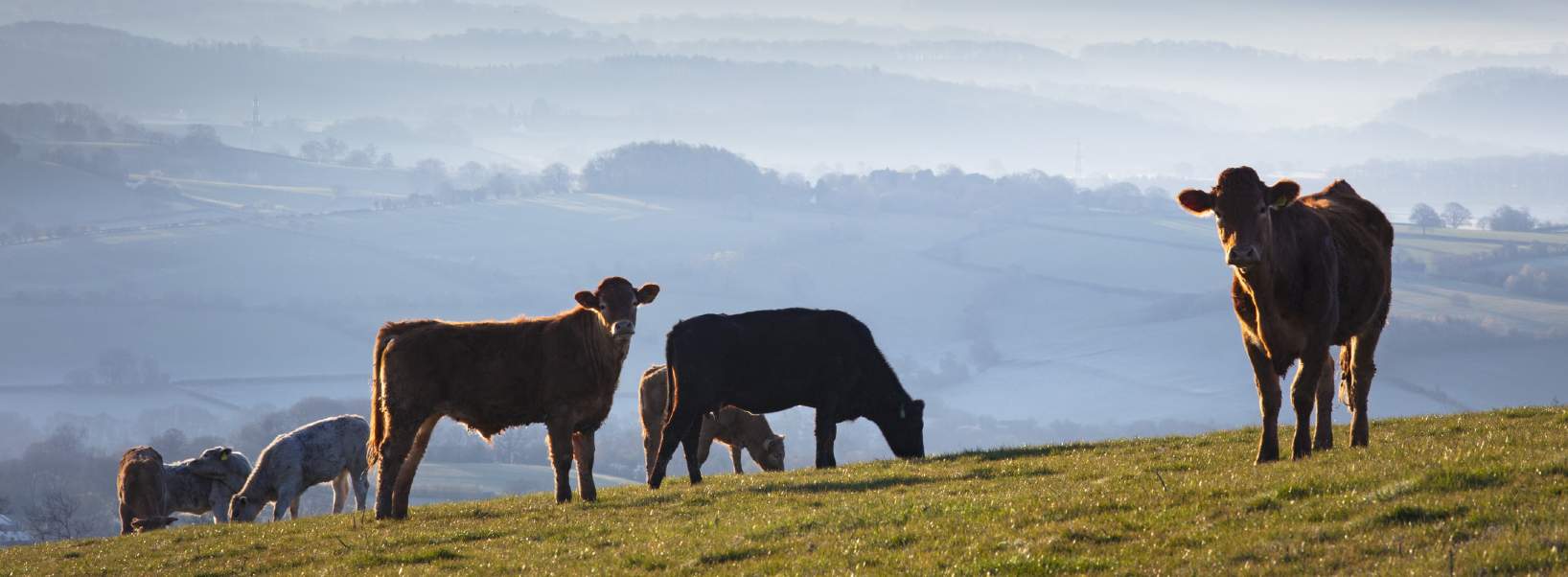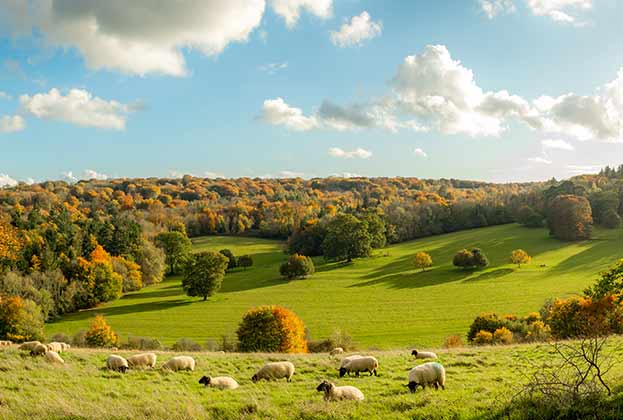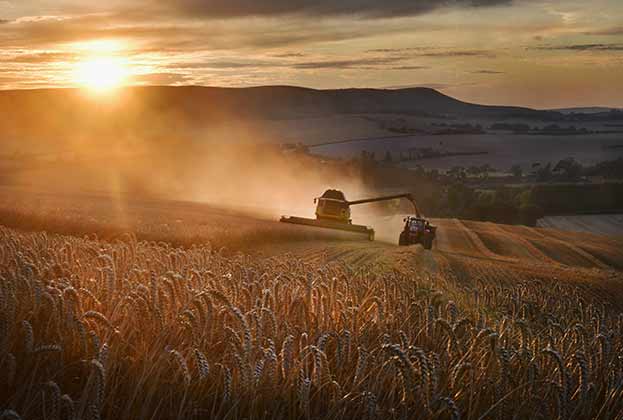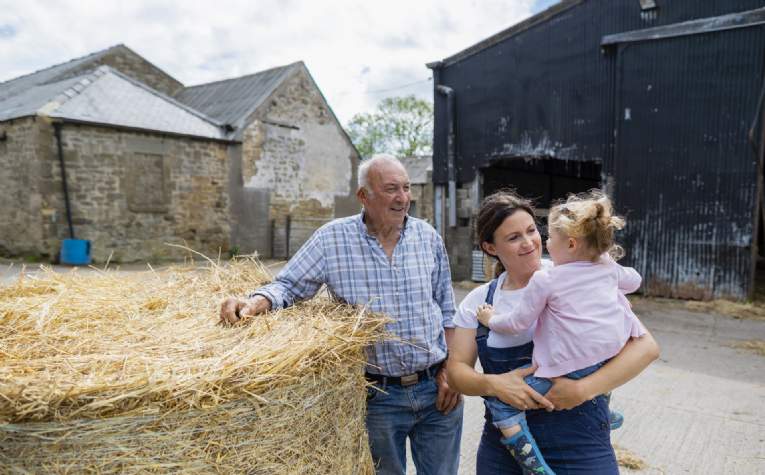What do Climate and Nature-related Financial Disclosures mean for land managers?
Land managers are most likely to be aware of the Taskforce on Climate-related Financial Disclosures (TCFD) if they happen to be working for an institutional portfolio. More may have heard the term ESG (environment, social and governance) for a business, and it can be said that TCFD focuses on the E and G.
TCFD was established in 2015 and is a set of international disclosure recommendations for larger businesses, which encourages them to find out and publish key pieces of information relating to the climate impact and risk of their operations.
Disclosures are intended for investors (lenders and other stakeholders) to assess and value financial risks and impacts related to climate change to allow the correct allocation of capital and to better understand investment risks.
In 2021, the UK Government made it mandatory for certain businesses in the UK to comply with TCFD. Listed businesses, financial organisations and ‘large asset owners’ are now all required to find out what their Scope 1, 2 and 3 greenhouse gas emissions are and disclose this as part of their annual reporting cycle.
How does TCFD affect farmers and land managers?
As small businesses, farms are not directly picked up by TCFD, but increasingly farms are being asked for information on carbon and climate risk from customers and suppliers who are reporting against TCFD metrics. Most supermarkets are listed businesses, and all banks will be required to comply with TCFD.
Direct carbon emissions from farms in producing food products are the Scope 3 emissions of customers and financiers. Farmers will be expected to create carbon balance information and disclose it as a condition of doing business with them. Freely available tools such as the Farm Carbon Toolkit and Agrecalc are available for this. Farmers will need to be cautious about whether supply chains are interested in the carbon emissions of a particular output (grain or milk for example), or the overall carbon balance of the farming system, which would include sequestration.
Enter a new set of global disclosures – TNFD
Before TCFD has really landed as an influence on farm management behaviour, a new set of global disclosures was announced in September, known as the Taskforce on Nature-related Financial Disclosures (TNFD). The TNFD framework requires organisations to disclose their nature-related dependencies and impacts across their entire value-chain, from the sourcing of materials to the delivery of products to the customer. It also requires them to find out if they have operations in ecologically sensitive areas.
The framework has been through a two-year global consensus-building exercise to ensure the information it requires on nature is meaningful and robust. Unlike TCFD, TNFD has not yet been adopted by the UK Government, meaning it is voluntary for UK-regulated businesses. The EU has, however, recently adopted mandatory sustainability reporting standards that require nature-related disclosures and it is feasible that the UK could follow.
From the organisation’s perspective, the structure of TNFD is the same as the structure of TCFD, with the same governance and strategy processes, and similar risk assessment methodologies and impact metrics for both nature and carbon. In theory, it should be relatively easy for businesses reporting under TCFD to adopt the wider range of nature impact metrics under TNFD. Uptake of TNFD is, therefore, expected to be quicker than TCFD.
There is no equivalent concept to Scope 3 within TNFD reporting, with organisations expected to disclose direct, upstream and downstream impacts, plus financed activities for financial institutions. The TNFD framework guidance makes it clear that primary producers and land-based businesses are a key source of nature-related risks for organisations. Financial institutions with direct lending or indirect financing to agriculture and forestry will, as a result, need more information about what farmers and foresters are doing to reduce and mitigate nature-related risks. Agri-food, packaging and construction businesses picked up by the framework will also need to start assessing and disclosing impacts and risks based on where they are sourcing from and what waste streams they are creating. Land-based businesses in high-nature value areas may be expected to provide more information on how they are supporting that environment.
Carbon and nature in the supply chain
The link between farm-level carbon information and corporate behaviour is beginning to ramp up, largely because it is easier to attach a ‘price’ to carbon emissions within supply chains. Farmers increasingly will be pushed by supply chains and financial suppliers to improve their carbon position. It is harder to put a price on nature, which in its very essence is diverse. However, TNFD impact metrics such as ‘the amount of input sourced from regenerative systems’ undoubtedly will lead more businesses to seek to source from this type of farming system.
It is important to remember that some regulated businesses with exposure to agriculture are already going further than the TCFD baseline to understand their environmental footprint. Tesco is asking all its farmers to become LEAF Marque Assured and Lloyds Bank is encouraging its farming business customers to use Soil Association Exchange to assess and benchmark their impact. These tools are holistic, collecting information about multiple aspects of the farm and its business, creating a more balanced picture of the water, biodiversity, carbon and community impacts. For farmers, this type of audit should also allow alignment with the broader TNFD reporting requirements, as and when the supply chain demands it.
Accountability is coming down the tracks
As time goes on, organisations reporting against TCFD and TNFD will need to be working with their primary producers – farmers, land managers and foresters – to create the information needed to fulfil new corporate reporting requirements and, eventually, take action to improve their impact.
Although TNFD impacts feel like some time away for farmers, the global shift to net zero and nature-positive business means accountability is coming down the tracks.
Further information
Contact Kelly Hewson-Fisher
The new environmental reporting measures affecting real estate in 2023
In plain English: Taskforce on Climate-related Financial Disclosures (TCFD) reporting

.jpg)
.jpg)
.jpg)

.jpg)


.jpg)

